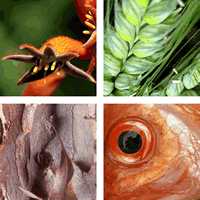RECOGNISED BIOSECURITY GROUPS
What is an RBG?
Recognised Biosecurity Groups (RBGs) are community-based independent associations that are recognised by the Minister for Agriculture and Food under section 169 of the Biosecurity and Agriculture Management Act 2007 (BAM Act).
The RBG model is based on a community led and coordinated approach, which is the most effective way to manage widespread and established declared pests.
RBGs bring together and support landholders to undertake action to manage those declared pest animals and plants that are of greatest concern to their communities. They also provide opportunities for landholders to coordinate their activities with others.
Under the BAM Act landholders are responsible for controlling declared pests on their own land. However, pest management can be challenging for individuals when the species is widespread and crosses boundaries, and is best addressed when communities, industries and government are working together.
The provision of public funds to RBGs (from the DPR and matched State funds) is the State Government’s approach to supporting landholders to fulfil their legal obligations.
How do I get in contact with my local RBG?
Email your local RBG for contact phone numbers, or you can visit their website.
What exactly does an RBG do?
The work of each RBG will vary according to their geographical location, declared pest priorities, focus and strategy. In summary, they can:
Educate
RBGs help landholders understand their legal obligations under the BAM Act to manage declared pests on their own land, and how an RBG can support them to do so.
Support
RBGs provide landholders with knowledge, skills and the confidence to carry out control activities successfully on their land.
Coordinate
RBGs can help landholders to coordinate their activities on a large scale to make long-lasting impacts.
Plan
RBGs develop annual operational plans that detail management strategies and the budget needed for the year. These are based on local declared pest priorities, which are developed with input from landholders and their communities.
How can I get involved with my local RBG?
Visit our web pages to find out if you have an RBG operating in your area, and contact them directly to learn about planned activities and opportunities to be involved.
What are examples of what my rate could be spent on/ how do RBGs use these public funds?
- Training in:
- various methods of control
- pest identification
- chemical use and certification.
- Opportunities to participate in seasonal control programs, such as community fox shoots, rabbit virus release and community baiting days.
- Subsidies for bait, restricted chemical product permits and chemicals.
- Provision of materials and equipment needed for pest management, through lending or hiring of equipment for landholder use.
- On-ground activities to complement landholder efforts, such as organising or engaging contractors to carry out wild dog or feral pig control.
- Displays at local and regional field days and shows.
- Websites, social media, newsletters, brochures, annual reports.
- Meetings, presentations, and information sessions.
- Annual awareness reminders.

